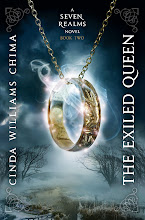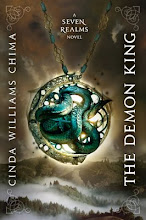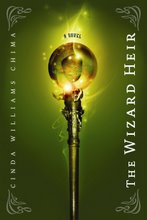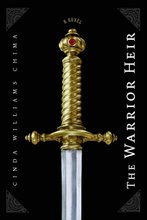Today I'm guest-blogging over at Forever Young, a YA Lit Blog.
WHY I WRITE YA
Reading was never more important to me than it was in my early teens—it bailed me out of real life at a time when I badly needed it. That’s when I began writing novels, too. I guess they were romances—the characters were based on me and my best friends. In my stories, we always got the cute guy. Which was great, because, in real life, no cute guy was even noticing me.
But, when my sons reached their teens, I wanted to write something they would enjoy reading. All three of us were fantasy fans, and so I returned to fiction, and began to write The Warrior Heir.
Mind you, I had no training for writing fiction, other than a lifetime of reading. I hadn’t had all that much practice, either. I had some skills—I’d done a stint as an advertising copy editor, I was a flaming fast typist (also courtesy of that advertising job) and had good spelling and grammar. And I had teenagers living right in my house.
Set in a small college town in Ohio, The Warrior Heir is about a high school student who discovers he is the last of a race of a magical warriors. He is being hunted by wizards who mean to play him in the Game, a magical tournament to the death.
After four years of revisions, studying craft, and writing three more novels (The Wizard Heir, and the first two books of a mammoth high fantasy trilogy for adults) I found an agent. She shopped The Warrior Heir to publishers of adult and teen fiction, and it sold as YA. Followed by The Wizard Heir and The Dragon Heir, which became best-sellers.
Then I had a decision to make. What would I do next? And I found I wanted to write more books for teens.
There are no more passionate readers in the world than teens. I should know—I get the emails. After a main character died in The Dragon Heir, I received a deluge of emails from readers, including one from a boy that said: EPIC FAIL, CHIMA.
I don’t condescend to teens—they get enough of that in real life. I try to tell them the truth—to the best of my ability. In wartime, it’s not just the bad guys who get killed.
It’s not easy writing for teens—but it’s not easy being a teen, either. Anyone who thinks it is should not be writing for that audience. My now twenty-something sons laugh at me because I am largely ignorant of popular culture. But the emotional truth of adolescence—that’s what drenches me when I walk into a school and see those rows of metal lockers and smell that gym-floor sweat and hear the morning announcements. When I walk into a cafeteria, I can’t help but wonder if anyone will let me sit with them. I remember the visceral pain of unrequited love.
My Seven Realms cycle is set in the world I created for my adult fantasy trilogy. I chose two pivotal characters and went back to when they were sixteen—to when they transformed themselves into the adults they would become.
Han Alister is a thief and streetgang leader who is trying to leave that life. He has a magical legacy, as evidenced by the silver wristcuffs he’s worn since birth. His mother believes that he’s demon-cursed, and there are times that he believes it, too.
All of my books are about transformation—that is the job of adolescence.
I frequently hear from young writers, and I make it a priority to answer their questions. I often post on writing topics on my blogs, and offer tools, tips, and links for them on my website.
The Demon King is now available in paperback, and The Exiled Queen
is now available in paperback, and The Exiled Queen  released September 28. There will be four books in the Seven Realms series, followed by two more Heir books.
released September 28. There will be four books in the Seven Realms series, followed by two more Heir books.
Excerpts from each of my books are available on my website, www.cindachima.com. Help for writers can be found under Tips for Writers, including a document called, “Getting Started in Writing for Teens.”













